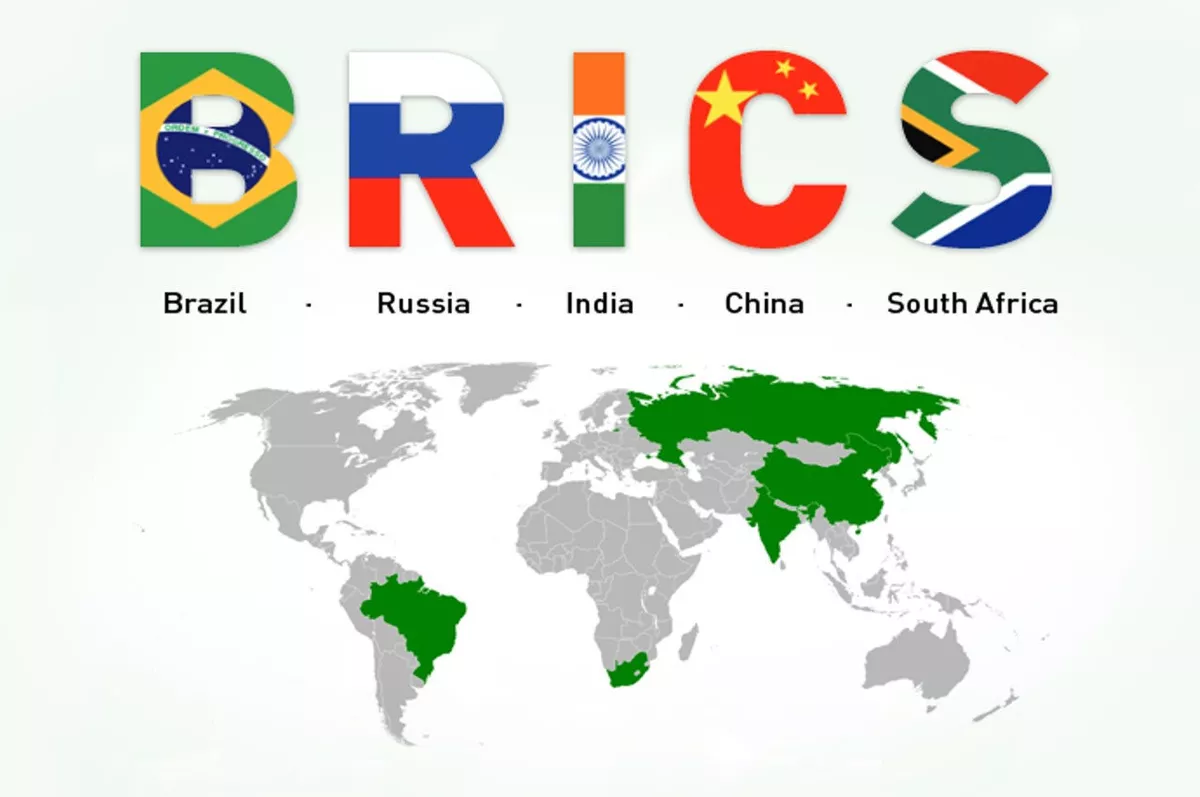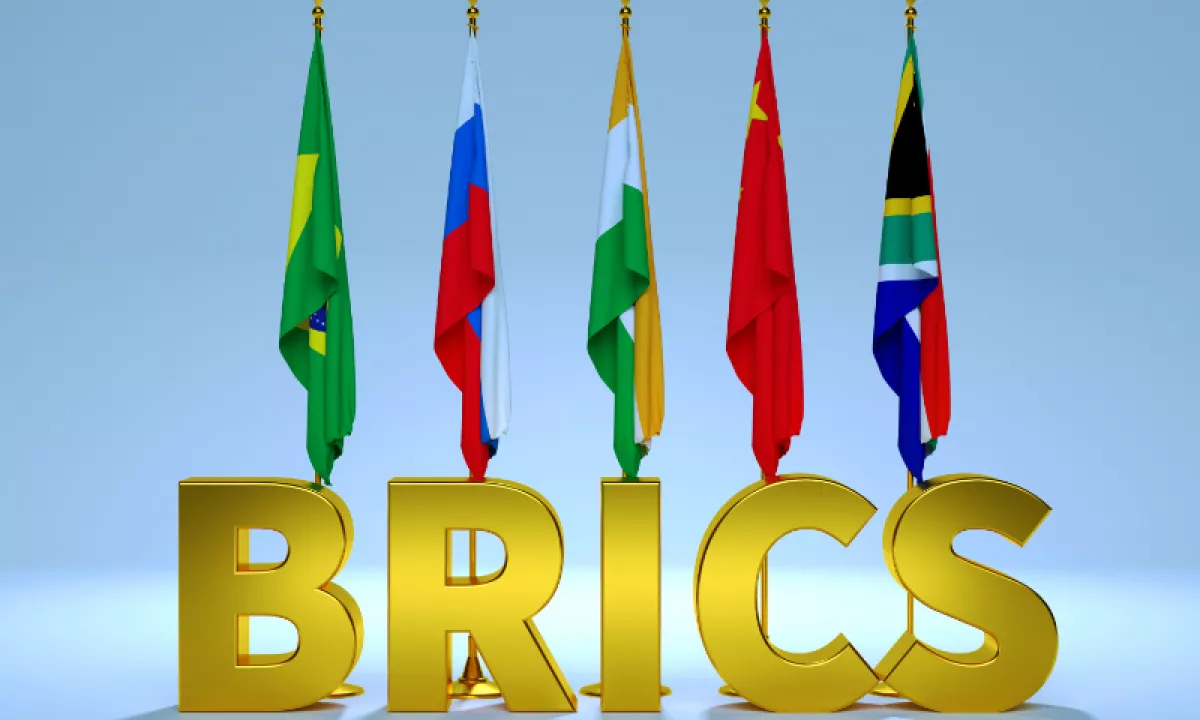BRICS rising: Pioneering a new era of global collaboration Charting new course for the Global South
From October 22 to 24, Kazan, the capital of Tatarstan, will host the forthcoming BRICS summit. This marks the inaugural meeting of the bloc in its newly expanded configuration, prompting speculation about further enlargement.
Sustainable development for all
The landscape of global economic power is evolving rapidly. Leaders expected to convene in Kazan include Chinese President Xi Jinping, Azerbaijani President Ilham Aliyev, South African President Cyril Ramaphosa, Indian Prime Minister Narendra Modi, Brazilian President Luiz Inácio Lula da Silva, Egyptian President Abdel Fattah El-Sisi, Turkish President Recep Tayyip Erdoğan, and Belarusian President Aleksandr Lukashenko. A total of 18 heads of state are anticipated to attend.
Prior to this global summit, several preparatory meetings have been held. Notably, on September 9-10, Sochi hosted the 10th BRICS Labour and Employment Ministers' Meeting, which included participation from trade unions. Among the outcomes was the decision to establish a permanent BRICS Network of Labour Research.
Additionally, on September 9, the BRICS Working Group on research of competition issues in pharmaceutical markets convened in Wuhan, China, where discussions centered on fair pricing strategies. Furthermore, the BRICS Climate Agenda Forum took place in Moscow on August 29-30, highlighting the bloc's commitment to addressing pressing environmental issues.
Between July and September, BRICS working groups convened to address a wide array of pressing issues, including anti-corruption, anti-terrorism, competition in food markets, renewable energy, biotechnology, and antitrust policy. Additionally, significant gatherings such as the 9th BRICS Civil Forum, the 10th BRICS Parliamentary Forum, the BRICS International Municipal Forum, and the BRICS Sports Games took place, alongside meetings involving BRICS Ministers of Industry, Youth, Environment, and Agriculture, as well as Deputy Ministers of Finance and Central Bank Governors.

This robust agenda highlights the bloc's current priorities, which encompass energy resources and the transition to sustainable energy, market regulation, financial cooperation, food security, biotechnology in medicine and agriculture, anti-terrorism, and environmental sustainability.
Importantly, BRICS is not merely co-opting the agenda established by Western powers, which often assert their dominance in technology, governance, and civil society promotion. Rather, the association aims to infuse these discussions with fresh perspectives that genuinely reflect the interests of developing nations. Achieving this objective requires a concerted effort to challenge Western hegemony.
For instance, during the recent BRICS Climate Agenda Forum, it was emphasized that developed countries should refrain from unilateral green protectionism, which is seen as a one-sided strategy detrimental to the economies and trade networks of developing countries. Furthermore, the forum urged wealthier nations to honor their commitments to provide climate financing to support developing countries.
Unobtrusive Expansion
While the agenda for the 16th BRICS summit in Kazan has yet to be unveiled, it is reasonable to anticipate that, alongside pressing global issues, more specific topics will be addressed. One key question is whether discussions will encompass the potential for further expansion of the alliance. Established in 2009 with Brazil, Russia, India, and China, the BRIC group was later joined by South Africa.
However, at the beginning of 2024, the alliance experienced a dramatic increase in membership, effectively doubling its ranks with the inclusion of Iran, Egypt, Ethiopia, the United Arab Emirates, and Saudi Arabia (the latter still determining its status). The addition of these significant oil exporters has considerably enhanced the bloc's influence.
The list of nations expressing interest in joining BRICS is extensive, with over 30 countries officially indicating their desire to participate, 24 of which have submitted formal applications. Among these prospective members are Azerbaijan, Algeria, Vietnam, Indonesia, Pakistan, Nigeria, Thailand, Venezuela, Kazakhstan, Cuba, Palestine, the Democratic Republic of the Congo, Gabon, Bangladesh, Bahrain, Belarus, Kuwait, Senegal, and Bolivia.
In July, Azerbaijan and China formalized a cooperation through a Declaration of Strategic Partnership, with Baku announcing its intent to join BRICS and subsequently submitting an official application. Türkiye has also expressed interest in membership. However, BRICS has indicated a temporary pause in accepting new members, emphasizing the need to establish sustainable interactions within the current framework of the expanded group. Yet, as the Kazan summit approaches, reports suggest that another expansion could be on the horizon. If such an expansion were to occur, the question remains: who might be the next to join?
Malaysia has recently taken significant steps to secure its place within BRICS, demonstrating a robust commitment to join the alliance. The country's leadership, along with influential partners such as China and Russia, is eager to expedite this integration. China, having long been Malaysia's largest trading partner, envisions deepening cooperation through initiatives like the "One Belt, One Road," which promises considerable economic benefits.
Moreover, collaborative research and development efforts between Malaysia and Russia could yield significant advancements in clean energy technologies, particularly in hydrogen fuel cell transportation and reducing hydrocarbon emissions. Both nations are also keenly interested in the oil and gas sector, where Russian technological expertise could enhance exploration and development of new fields while improving the efficiency of existing operations. Malaysian Prime Minister Anwar Ibrahim is expected to attend the summit in Kazan.
In addition to Malaysia, Thailand has also submitted an application to join BRICS. The status of Saudi Arabia is anticipated to be clarified during the Kazan summit, as the nation deliberates its position within the bloc.
A new agenda from the Global South
The BRICS alliance has witnessed a remarkable surge in popularity, driven primarily by the rapid economic ascendance of the Global South. At the forefront of this movement is China, the undisputed leader among developing nations. However, numerous other countries are also experiencing unprecedented rates of growth.
Current economic dynamics reveal that in 2024, developing nations are projected to lead global GDP growth with an impressive increase of 5.2 per cent, in stark contrast to the mere 1.5 per cent growth observed in developed countries. Notably, South Asian countries contribute 5.5 per cent to this growth, while East Asian, ASEAN, and North African nations account for 4.2 per cent. In comparison, North America's GDP growth stands at just 2.1 per cent, and Western Europe languishes at a mere 0.7 per cent.
While it is important to consider the initial low base from which these countries are growing, the prevailing trend indicates a notable economic decline in the West, which is struggling to compete with China and other emerging nations.
A significant factor fueling this momentum is the South's access to modern technology, which has transformed its economic landscape. Despite the West's reluctance to acknowledge it, advancements in digital technology are facilitating the rapid dissemination of innovation and boosting production capabilities in developing countries. Today, China and India are making groundbreaking strides in fields such as artificial intelligence, space exploration, and renewable energy.

Moreover, for many developing nations, BRICS presents an appealing alternative to the established Western dominance embodied by institutions such as the G7, the Organisation for Economic Co-operation and Development (OECD), International Monetary Fund (IMF), and World Bank. This shift represents a desire for greater agency and a more equitable global economic framework, further enhancing the allure of the BRICS alliance.
Another significant factor contributing to the rising unification of the Global South is the current political and moral discrediting of Western powers. This disillusionment stems from the blatant hypocrisy exhibited by Western nations, which have systematically engaged in military aggression against various countries and peoples in the Global South. In contrast to the Western bloc, which often imposes its liberal "values" as a uniform ideology, BRICS offers a more inclusive framework that does not enforce a singular belief system upon its members.
This diversity is a key attraction for potential new members, although it also represents a potential vulnerability, as internal contradictions—such as those between China and India—can complicate the alliance's cohesion.
Moreover, membership in BRICS provides substantial economic advantages. Trade among member countries has flourished, with the share of world trade between these nations more than doubling to 40 per cent from 2002 to 2022. This robust trade within the "domestic" BRICS market is fueled by a large and growing population, the recent emergence of a middle class, and the ongoing expansion of the alliance itself.
Additionally, BRICS markets are increasingly appealing due to the relatively lower levels of protectionist regulation compared to those seen in the EU and the US. This is especially pertinent in light of recent measures taken by the US administration to curb Chinese competition through elevated import tariffs, further incentivizing countries to seek collaboration within the BRICS framework.
Growing potential
Despite being often characterized by the West as an “alliance of autocracies,” BRICS exhibits a level of democratic engagement that surpasses many Western-led coalitions. The alliance does not impose directives on its members, nor does it engage in regime change through “color” revolutions.
Constructive criticism of the organization is not only tolerated but also encouraged; candid assessments are published directly on the official BRICS website. For instance, Brazilian economist, a former vice president of the New Development Bank (NDB) Paulo Nogueira Batista, has expressed skepticism about the institution's progress. He observed that concerns from Washington regarding the NDB have diminished as the bank has struggled to establish itself, approving only $33 billion in projects since its inception, compared to the World Bank's $128 billion approval in 2023 alone. Moreover, the NDB has complied with Western sanctions against Moscow, raising questions about its independence.

The aspiration among some member countries to establish a unified currency as an alternative to the dollar remains unfulfilled. Currently, discussions focus primarily on regulatory cooperation among the central banks of BRICS nations, even though the topic of transitioning to a new BRICS settlement unit is frequently revisited.
The concept of a “free market” within BRICS is also complex. While some member countries have established free trade agreements among themselves, there is no overarching agreement that encompasses the entire group. The interests of BRICS members do not always align, and according to some experts, the aggressive economic expansion of the United States is driving developing nations to seek refuge within this alliance. This dynamic underscores the potential of BRICS to serve as a counterbalance to Western economic dominance, even as it navigates its internal complexities.
It is highly probable that the Kazan summit will address the establishment of a coalition of partner countries, envisioned as a precursor to the BRICS club. Under this proposal, each member nation would nominate ten countries from the pool of applicants seeking BRICS membership. The ten countries most frequently suggested could then be designated as partner nations. This initiative aims to create a “living room” concept, serving as a safeguard against the rapid influx of new members into the association.
Currently, BRICS countries are accumulating significant demographic and economic influence, setting new records in various metrics. They collectively represent nearly half of the world’s population (46 per cent), in stark contrast to the G7, which accounts for only 10 per cent. The share of global GDP attributed to BRICS nations has reached 35.7 per cent, surpassing the G7's 29 per cent, a substantial decline from 42 per cent two decades ago.
Projections indicate that by 2050, BRICS could command 50 per cent of global GDP, while the G7's share may dwindle to 20 per cent. Furthermore, BRICS nations currently produce 40 per cent of the world’s oil.
Importantly, many BRICS members and aspirants do not seek direct confrontation with the West. Instead, they view this alliance as a means to diversify their economic strategies and to cultivate a viable alternative to Western monopolies.
What is clear is that BRICS stands as a crucial pillar in the emergence of a new multilateral world order. The forthcoming summit in Kazan is poised to contribute vital insights into the evolving landscape of global economic architecture.








